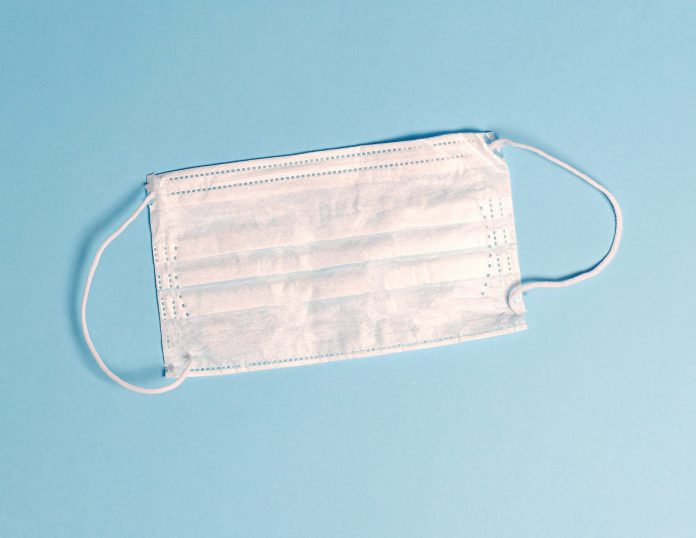European neobanks have taken steps to limit the impact COVID-19 will have on their businesses.
Challenger banks across Europe are taking preemptive steps to protect themselves, their employees, their customers and their bottomlines from the coronavirus. Neobanks around the continent have spent the past few weeks implementing rotating schedules, launching response teams, limiting traveling and writing blog posts about how to live through the growing pandemic. And it’s easy to see why they might be concerned.
At the time of writing, roughly 7,100 people around the planet have died from the virus. There have been over 179,000 cases reported out of which more than 78,000 have recovered, according to the Center for Systems Science and Engineering at Johns Hopkins University. Those numbers are only expected to grow in the next few weeks.
As they do, the coronavirus will continue to wreak havoc on the global economy. The epidemic has already pushed stock markets worldwide into freefall despite co-ordinated efforts from central banks to cushion the impact of the pandemic. The entertainment industry has halted the production and release of big movies and television series such as the new James Bond movie, the fourth season of the Netflix show Stranger Things and A Quiet Place Part II. Gyms are rethinking their classes or closing down entirely.
Business meetups, concerts, marathons and other mass events have been called off or postponed across Europe. Public facilities, schools, universities, restaurants, shops, hairdressers and other places have closed for the time-being or are expected to be. And Airbnb has allowed guests to cancel their reservations and to get a full refund as the number of travel plans are being disrupted around the world.
All these factors could have an impact on the FinTech industry. For instance, the stock market slump could become a catalyst for lower valuations and investors holding back investments into the industry, according to Forbes.
The stock market volatility is also likely to make consumers less likely to invest their savings, meaning fewer customers will probably use the services of digital wealth mangers and online trading platforms such as Robinhood, according to Business Insider.
Payment giants Visa and Mastercard have both warned that they will struggle to meet expectations this quarter due to people being less likely to travel.
COVID-19 could also lead to hardware shortages. Square, Jack Dorsey of Twitter’s contactless payment company, noted in its annual report that the pandemic could lead to “a prolonged period of travel, commercial and other similar restrictions”, which in turn could lead to disruptions of Square’s “supply chain and shortages of our hardware products, which could affect our ability to grow and acquire new sellers and materially and adversely impact our financial results.” It noted that it could also affect the development of new products.
It is against this chaotic backdrop that challenger banks across Europe have taken measures in an understandable attempt to try to avoid getting caught in the middle.
Starling Bank, the UK challenger bank, is one of the ones that have taken measures to soften the coronavirus blow. “We’re taking immediate precautionary steps to ensure the continued smooth running of the bank,” a Starling Bank spokesperson tells FinTech Global. “As a branchless bank, we have no physical touch points with customers. To minimise personal contact between employees, we’re trialling a split system of A and B teams working remotely during alternate periods. In addition, we are fortunate enough to work out of three offices and our Business Continuity Plan ensures that key services can be shared between sites; should one site be partially closed, key functions will continue in other sites.
“We’re following guidance provided by national and international health agencies, including for employees who are unwell and/or have travelled to affected countries. We’re stopping travel between our offices, ensuring that employees stick to one floor in the buildings and holding meetings with external participants by video link and phone, rather than have visitors to the offices. All policies are under daily review.”
Other neobanks – such as Revolut, bunq, Monzo and Nickel – have issued blog posts and tweets about how to avoid spreading germs, catching the disease and how they can support their customers during the pandemic. Those tips include everything from hot tips for staying productive when self-quarantining and how to protect yourself against coronavirus-related scams to using contactless payment solutions rather than using “dirty PIN terminals”.
German challenger bank N26 has responded to the growing pandemic by assembling a dedicated response team of internal and external experts, and consultants. “To date, we have implemented a number of measures to restrict work travel, empower remote working and diversify the locations of key business functions,” a N26 spokesperson tells FinTech Global. “Our team is continuing to monitor the situation to respond as circumstances evolve, so that we can ensure the safety of our employees and also keep our customer service teams available seven days a week, as per usual.”
N26 has also taken measures to restrict work travel, empower employees to work remotely and diversify the locations of key business functions. “As a global organisation made up of digital natives, we have always believed in flexible and remote working and this has helped us quickly adapt our approach and empower our employees to adjust the way they work as the situation evolves,” the spokesperson says.
OakNorth, the British small business-focused challenger bank, has taken similar precautions. “We have a task force assembled that is consistently monitoring the global situation and we are in contact with our clients and other stakeholders on a daily basis,” Valentina Kristensen, director of growth and communications at OakNorth, tells FinTech Global.
When asked about how OakNorth has been affected by the coronavirus, she responds that it is still early days. However, Kristensen is confident that the neobank, which famously reached profitability within six months after its launch in 2015, will be able to weather the storm.
“As a bank, we are extremely well-capitalised and, as demonstrated by our 2019 annual results, we have the necessary liquidity to continue prudently lending to growth businesses at a time when many of our peers will likely be retrenching from the market,” says Kristensen.
“Of course, the next few months are going to be hugely challenging for businesses around the world, but we believe that with the right finance support, these businesses can not only survive but thrive and turn this unprecedented threat into a significant opportunity.”
Italy has become ground zero for the European outbreak of COVID-19. At the time of writing, 27,980 people have been infected in the nation, according to the Center for Systems Science and Engineering at Johns Hopkins University. Of those, 2,158 people have died and 2,749 people have recovered.
N26 is one of the challenger banks that have offices in the country. Yet, so far the neobank has not felt a negative impact because of the virus. “While we do have a handful of employees based in Italy, most of our business operations for the Italian market continue to be based out of Berlin,” says the N26 spokesperson. “We took the decision some three weeks ago to mandate remote working for all our Italy-based staff, and have taken action to diversify the locations of our customer support teams across three locations in Berlin. That said, we are going about business as usual in Italy and every other city we operate in, with no interruptions to our usual rhythm.”
Interestingly, N26 has noticed that its customers’ behaviour have slightly changed. “While we haven’t seen any notable change in the spending habits of our customers in the last few weeks, have seen a slight increase in the number of card and mobile wallet transactions, and we expect this trend to continue as more people adjust their everyday habits to reduce the risk of transmission,” says the N26 spokesperson.
“We believe this is because recent reports from the WHO have advised people to use contactless payments over cash whenever possible, as bank notes change hands often and can carry bacteria and viruses as they are circulated. Using a mobile or digital banking solution like N26 means that customers are able to pay with their own card or mobile device only, without having to handle cash.”
Copyright © 2020 FinTech Global











